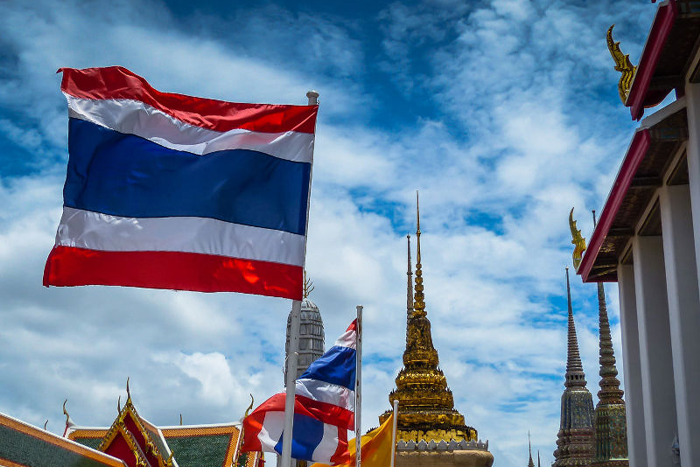Chairman’s Note
Private and Confidential
For SIIA Corporate Members and Advisors
October 2024
Prabowo’s Policy Challenges [1]
I write to you as our valued member and friend to share insights from a recent visit to Jakarta from 9-13 September. Throughout various discussions, the key focus was on the incoming Prabowo Subianto administration’s policy directions, particularly in relation to sustainability, energy, and economic priorities as Indonesia prepares for a new phase of leadership.
I kindly request that the following observations be kept confidential, given the following three caveats. First, the political landscape remains highly dynamic, with various stakeholders vying for influence in shaping the administration’s priorities. Second, the perspectives shared here are drawn from discussions with a select group of participants and observers, and not the primary decision-makers themselves. Lastly, as the SIIA continues its work in the region, we aim to deepen our engagement with the Prabowo administration post-inauguration, alongside other key players.
1. Ministry and Cabinet Reorganisation: The number of ministries is expected to increase to accommodate the interests of various political parties, which may impact overall government effectiveness. Discussions are underway regarding the possible reassignment of key responsibilities between ministries. For instance, the Ministry of Environment and Forestry may be split into two separate entities, and some of the Forestry portfolio’s land management functions may also be shifted to the existing Ministry of Agrarian Affairs. This reorganisation could improve concession licensing and address jurisdictional issues but may take time to implement.
2. Limited Time and Political Capital: Prabowo acknowledges that he has limited time to effect change in his key policy areas – such as energy, food, water security – due to his age and views this as his last chance in politics. Additionally, he has exhausted his political capital to social policies like pensions and free lunch programme. This may constrain his ability to tackle other significant issues, such as fossil fuel subsidies and broader energy market reforms. Due to this, some view it as necessary for Prabowo to start thinking about succession and grooming the next generation of leaders who can take over his legacy.
3. Budget and Priorities: Although Prabowo has committed to continuing the new capital Nusantara project, his 2025 draft budget allocates significantly less funding than Jokowi’s Rp 42.5 trillion spent to date. Instead, Prabowo has prioritised over Rp 70 trillion for his free school lunch programme, signaling that Nusantara – which has faced delays – will not be a key focus of his administration. The budget, announced by Jokowi in August, was a compromise developed with Prabowo’s nephew Thomas Djiwandono as Jokowi’s Deputy Finance Minister. Moving forward, Thomas Djiwandono is believed to have a large influence in the Finance Ministry’s direction in the upcoming administration.
4. Jokowi’s Consolidation in Regional Election: As he nears the end of his presidency, Jokowi is concentrating on the competitive regional elections in November, especially in Jakarta, North Sumatra, and Central Java. Jakarta’s governorship remains crucial, leading Jokowi to prevent rival Anies Baswedan from running while backing Ridwan Kamil, who supports Prabowo’s policies. However, the fragmented Onward Indonesia Coalition in other provinces may challenge the new government’s policy implementation. While the large-tent coalition worked in Jokowi and Prabowo’s favour during the February presidential election, it remains uncertain whether it will be as effective in the regional elections on November 27.
5. Prabowo-Jokowi Balance: Jokowi has taken control of the powerful Golkar, with loyalist Bahlil Lahadalia – also holding important portfolio as Energy Minister – taking over chairmanship from Airlangga Hartarto. Concurrently, Prabowo’s trusted allies have also been given important posts in the incoming administration to balance the influence of Jokowi’s loyalists across various ministries. As the October 20 power transition approaches, tensions are reportedly rising between Prabowo and Jokowi. Aside from disagreement over Nusantara project, a recent source of friction stems from the House of Representatives’ attempt to revise the Regional Elections Law, which would have allowed Jokowi’s youngest son to run for Central Java governor this year. Amid protests on August 22, Prabowo urged Jokowi to halt the legislative process out of concern for its impact on the upcoming administration’s transition.
6. New Carbon Agency to be Created: Critics argue that carbon market development has been sluggish, emphasising the need for acceleration. Prabowo administration aims to expedite securing mutual recognition agreements with international carbon markets to facilitate cross-border trading of carbon credits. Furthermore, there is a plan to establish a new independent carbon agency that will report directly to the President’s office. This agency will oversee the development of carbon markets and projects in Indonesia, promoting forest carbon initiatives and contributing to ecosystem conservation and haze prevention.
7. Green Energy Transition Remains Challenging: It is unlikely that the Prabowo administration will reduce fossil fuel subsidies in favour of green transition. Aside from this being politically challenging, it would strain Indonesia’s economy. Usage of coal power will continue due to the availability of coal reserves and politically powerful stakeholders in the coal industry. While there has been some progress in retiring older coal plants, shutting down newer plants is difficult.
The official handover from Jokowi to Prabowo on October 20 will mark a significant moment for Indonesia’s future direction. Cabinet lineup and restructuring of ministries is a dynamic process – said to be finalised shortly before the inauguration. Attention will be focused on whether Prabowo can balance political interests while securing effective leadership for key ministries. With a larger cabinet, there will be a lot of speculation about personalities with greater influence and access, and how the new structures and agencies will gel. Furthermore, regional elections in November will serve as an early litmus test for Prabowo’s political strength, particularly in Jakarta and other pivotal provinces. The stability of Prabowo’s administration will be contingent on his ability to manage competing priorities and navigate internal tensions with Jokowi.
Yours sincerely,

Simon Tay
Chairman
![[Premium] Chairman’s Note: Prabowo’s Policy Challenges [1]](https://siiaonline.org/wp-content/uploads/2020/04/fikri-rasyid-U72GezFkEfg-unsplash.jpg)



